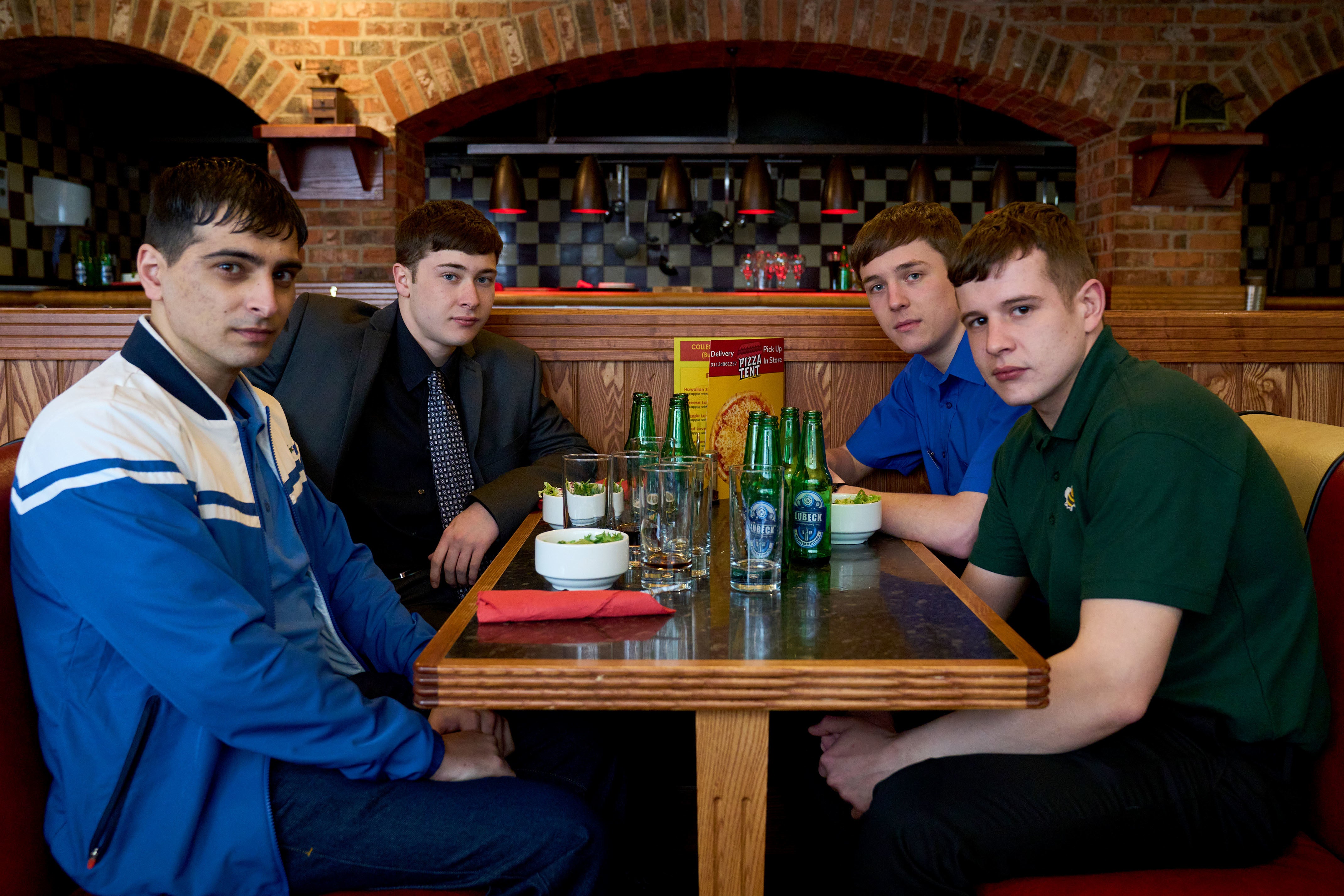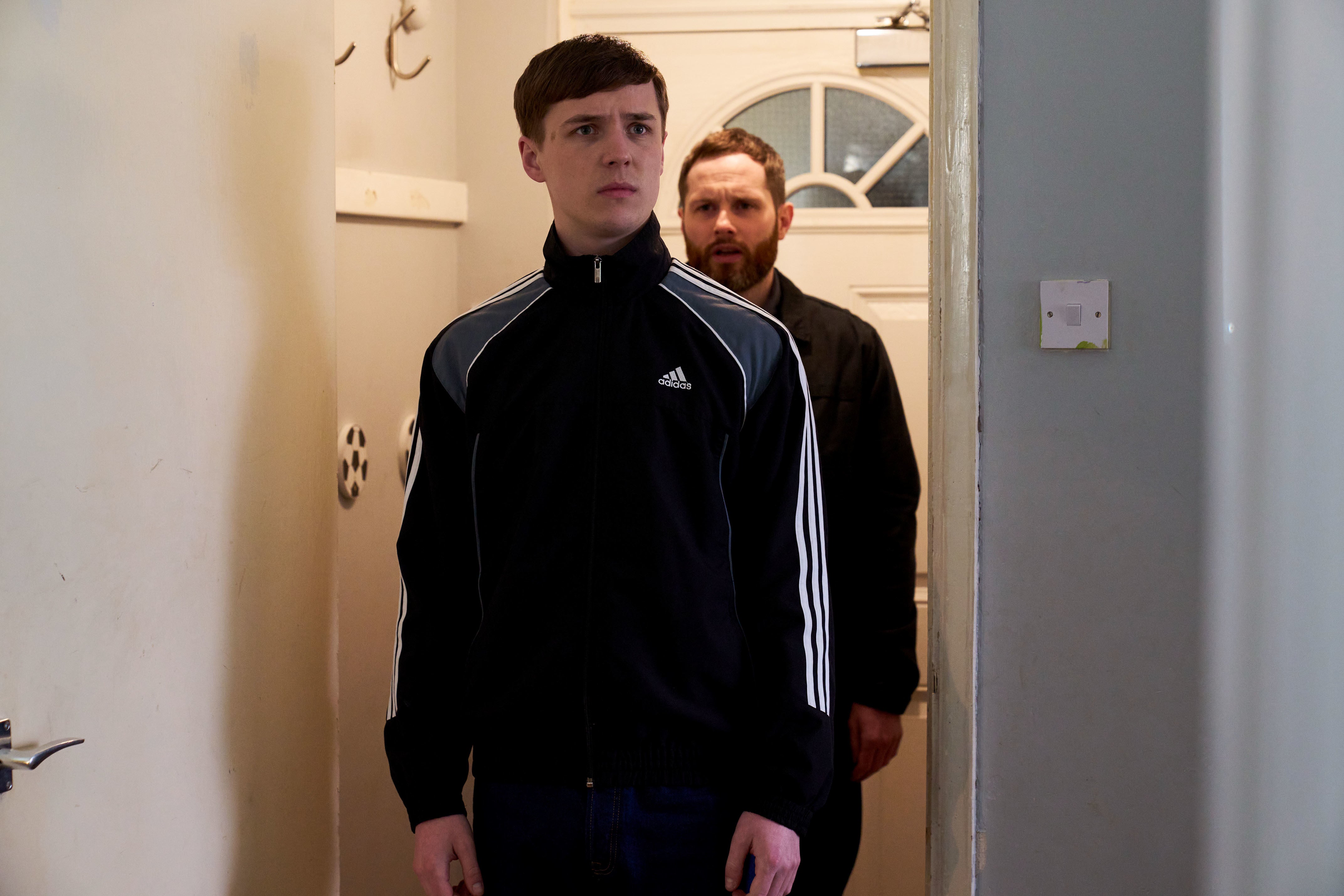Ladhood’s Liam Williams: ‘Almost as soon as I got to university, I felt my accent changing’
The comedian and writer talks to Isobel Lewis about the nicer side of being a ‘lad’, why he lost his Yorkshire accent at Cambridge, and why the Edinburgh Fringe has reawakened his desire to perform stand-up


Your support helps us to tell the story
From reproductive rights to climate change to Big Tech, The Independent is on the ground when the story is developing. Whether it's investigating the financials of Elon Musk's pro-Trump PAC or producing our latest documentary, 'The A Word', which shines a light on the American women fighting for reproductive rights, we know how important it is to parse out the facts from the messaging.
At such a critical moment in US history, we need reporters on the ground. Your donation allows us to keep sending journalists to speak to both sides of the story.
The Independent is trusted by Americans across the entire political spectrum. And unlike many other quality news outlets, we choose not to lock Americans out of our reporting and analysis with paywalls. We believe quality journalism should be available to everyone, paid for by those who can afford it.
Your support makes all the difference.Lad. For many, the word conjures images of toxic masculinity – lad mags, lad culture, LadBible (before it went mainstream). But for a young Liam Williams, living in the small town of Garforth near Leeds, it was simply a term of endearment. “When I grew up, ‘lad’ was quite a Yorkshire…” he pauses, careful not to claim “lad” as entirely his. “It’s not exclusively Yorkshire, but it’s quite a Yorkshire idiom. As we were becoming teenagers and playing with more adult identities and imitating parents or people, older men, I guess, I remember ‘lad’ coming into our vocabulary. It created a nice sense of belonging in the group.” He adopts a Yorkshire accent, presumably reminiscent of one he once had: “’Ow’re you doing lad, ’ey up lad.”
I meet Williams in an old-school pub in London, perhaps an appropriate setting to talk about laddishness, with the final series of his critically acclaimed coming-of-age BBC Three sitcom Ladhood about to be released. In the show, a somewhat fictionalised version of the comedian looks back at his adolescence in Garforth, rolling his eyes and professing the lessons he claims to have learnt since then. The real-life Williams is less self-righteous than the older Liam in the show. His eyes stay on the same point in the distance, but it doesn’t feel like an anxious attempt to avoid eye contact. Rather, you can feel Williams carefully choosing his answers and anecdotes, not wanting to misrepresent himself or fail to do the show, or his experiences, justice.
Garforth may be the setting of Ladhood, but it was Cambridge University and the prestigious Footlights troupe where Williams got the comedy bug. As a stand-up, he would go on to earn two Edinburgh Comedy Award nominations in three years and be named “the voice of a generation” by this paper in 2014. When he gave up stand-up, out came his YouTuber mockumentary Pls Like, in which he starred as a wannabe vlogger.
In Ladhood, Williams looks back on his younger self (Oscar Kennedy) and his friends Ralph (Samuel Bottomley), Addy (Aqib Khan) and Craggy (Shaun Thomas). In the early Noughties, young Liam and co trick each other into believing ghost stories and misguidedly look for dating tips in pick-up artist manual The Game. In the modern day, the Narrator (as Williams refers to older Liam) tuts at their behaviour, only to attempt to cheat on his girlfriend on a drug-fuelled night out.
Stories of male teenage friendship on screen are few and far between, but there’s a unique sense of tenderness that pervades in Ladhood through the heavy scent of Lynx Africa. The boys still prank and brawl, but they’re not afraid to apologise or realise when they’ve taken things too far. If anything, Williams says, this is their acceptable way of showing their love for one another. “There were a lot of play fighting that was very affectionate when I was young,” he explains. “We used to call it a pile-on, where everyone would just jump on each other. That clearly in hindsight was a socially acceptable way to share physical affection as young men.”
As series three arrives, the gang are on the brink of adulthood – or something like it, at least. Liam’s school and parents are pushing him to apply for Oxbridge while the other boys have pooled the money from their weekend jobs to buy a flat, which they’ve piled high with the latest gadgets bought on credit. While young Liam prepares to fly the nest, the Narrator wrestles with the possibility of moving back to Garforth. In the mid-Noughties, the boys make Liam promise that he won’t change when he leaves. In the modern day, the Narrator meets up with an old school friend who tells him he seems like a “totally different person”. “Well, I’m not,” the Narrator replies wearily.
The fact is, leaving home did change Williams. While he never planned a neat, three-season arc for Ladhood, he says it would feel “disingenuous” for the show to follow him into university, because “in my own experience, my life went in a bit of a different direction at that point”. In what way? He pauses. “It was superficial, but not unimportant. Almost as soon as I got to university, I felt my accent changing. I know it was voluntary to an extent, but on some level, maybe it was my own paranoia, I felt like turning up with a broad Leeds accent, I wouldn’t be taken seriously enough… And then I’d go back to Garforth and people would be surprised and even slightly distrustful, ‘Why have you changed in this way?’”

Williams begins to downplay the impact these moments had on him, then considers. “But actually, they speak to bigger social distinctions, if not social divides. However consciously it was to do with class or anything like that, I’m not sure, but I felt like I was in a slightly different realm suddenly. I was a bit split between the two but they weren’t fully reconcilable in some way.”
When he found himself moving back to Garforth and “on the dole” after graduating, Williams knew he had to pursue a career in comedy. His parents pushed him to apply for teacher training, but he “just felt like a fraud” in the interviews. He tried writing sketches for his then-unnamed sketch trio Sheeps, consisting of Al Roberts and Daran “Jonno” Jonson, but, he says with a throaty laugh, “I was very depressed so it was quite hard work.”

Watch Apple TV+ free for 7 days
New subscribers only. £8.99/mo. after free trial. Plan auto-renews until cancelled

Watch Apple TV+ free for 7 days
New subscribers only. £8.99/mo. after free trial. Plan auto-renews until cancelled
Williams did eventually move to London, where he would go out and gig every night. Three years later, he threw in the towel on stand-up, finding the experience “weird and slightly isolating”. “When I was ‘on the rise’,” he begins, making sure I note his use of air quotes, “Every night felt like a fun challenge… But I’d done that three years in a row. By the end of the third year, you do the show and you’re in a drinking establishment at 10 o’clock… and every night’s a party. And then suddenly, after three years of that, it’s like well no, every night can’t be a party.”
As Williams laid down the microphone in 2015, he turned his focus to writing. The following year, his debut play, Travesty, was staged at the Edinburgh Fringe. The year after that, Pls Like dropped, introducing him to a BBC Three audience. He’s kept performing with ludicrously silly sketch group Sheeps at the Fringe, the trio returning this August for their 12th anniversary show Ten Years, Ten Laughs (don’t ask). Up until now, Sheeps has scratched that performance itch for Williams. But when I ask him about it now, he looks genuinely conflicted. “Well, it had for those intervening years. But being [at the Fringe] this year and seeing the shows and just being back in that environment really, the itch is back.”

If Williams is to return to stand-up, he says it’ll be with a “more mature attitude” and a revitalised appreciation for the medium. There was a phase, “probably just before the pandemic where I fell out of love with it a bit. I felt like I’d seen it all and it was not surprising me anymore. And then when it all went away because of lockdowns, I felt really bereft and just really bad for people for the ‘community’” – he umms and ahhs about his decision to put “community” in air quotes – “No, I’ll stand by community – community of other live performers. That’s [what’s] propelled me to seeing all those shows this year and feeling a bit refreshed about it all.”
Perhaps it’s leaving Ladhood behind that is allowing Williams to consider returning to live comedy. There’s a “bittersweetness” in the show ending, “something like catharsis”. “The theme of the series is a realisation that life contains endings, even if they’re a bit arbitrary and vague,” he says. “I’ve learnt that I did have and probably will always have, an obsession with the past, my own past, that in some ways is informative and fruitful and in some ways is a hindrance. It might help me to let go a little bit more, but you can only do that once you’ve learnt its lessons.”
Ladhood may seem like a show about his own specific emotions, but at the end of the day, Williams says, “it’s not really about me”. “I suppose the point is to emphasise how thinking back and seeing our own patterns, helps us to realise the ways in which we’re trapped or that we’re not growing or not” – he whips out the “biggest quotation marks you’ve ever seen” – “‘Living our best lives’. Ladhood has allowed me to do that in all sorts of ways, a lot of which are on screen, but some of which are not… It’s a real privilege to have this very, very material tool for experiencing that retrospection and catharsis that we all need to go through in life.”
Ladhood series three is on BBC iPlayer now



Join our commenting forum
Join thought-provoking conversations, follow other Independent readers and see their replies
Comments